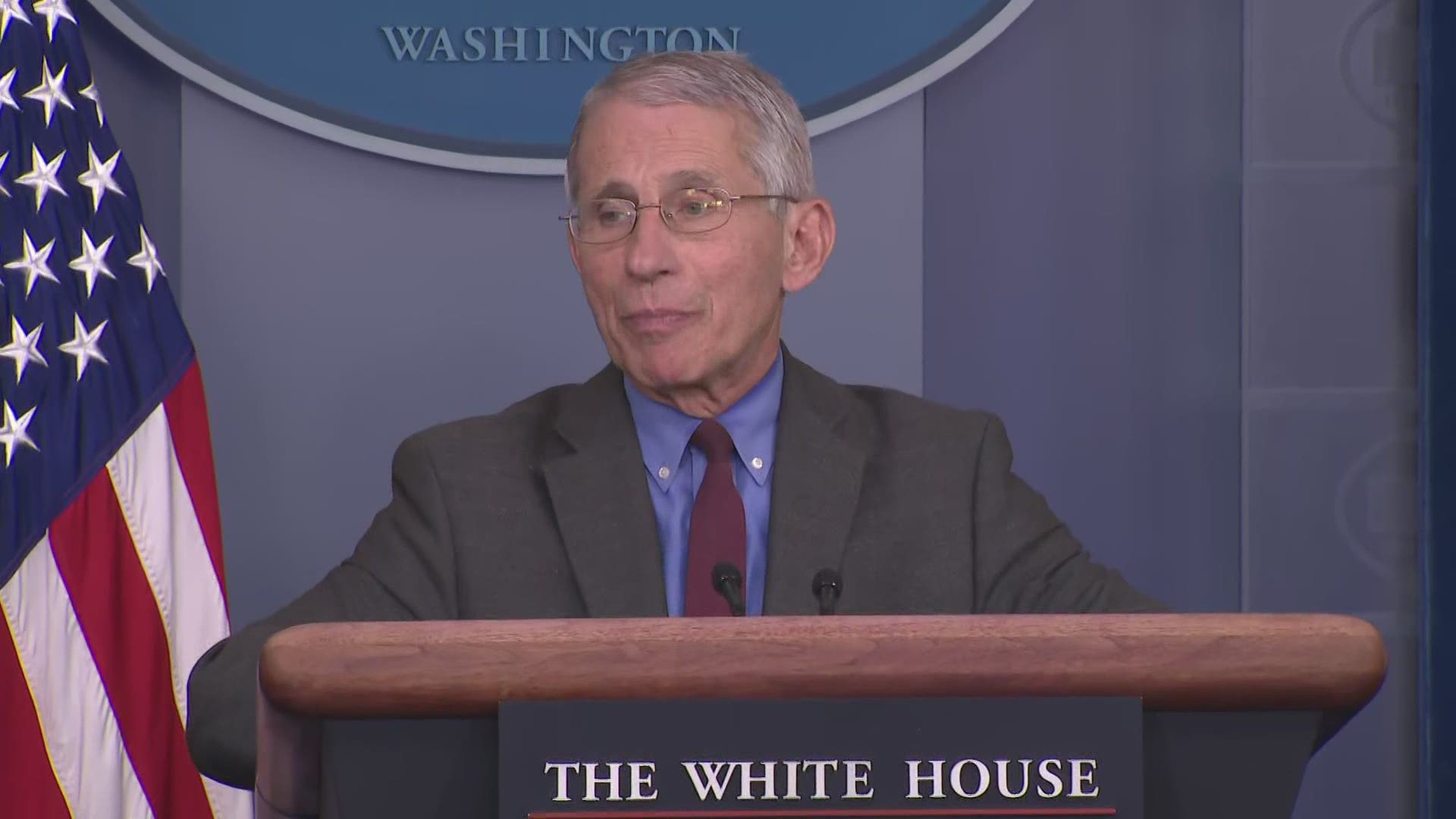BETHESDA, Md. — The National Institutes of Health is looking for 10,000 volunteers to participate in a study to learn how much the new coronavirus has spread undetected in the United States.
Researchers will collect and analyze blood samples of the volunteers, who haven't tested positive with SARS-CoV-2, the virus that causes COVID-19. The study will look at the antibodies a person has, which will indicate if the person has actually been infected with the virus or not.
“This study will give us a clearer picture of the true magnitude of the COVID-19 pandemic in the United States by telling us how many people in different communities have been infected without knowing it because they had a very mild, undocumented illness or did not access testing while they were sick,” said Dr. Anthony S. Fauci, National Institute of Allergy and Infectious Diseases director.
Volunteers must be healthy and over the age of 18. Anyone anywhere in the United States can participate unless they have tested positive for COVID-19 or currently show symptoms.
The NIH says researchers will test participants’ blood samples for the presence of SARS-CoV-2 antibodies, which are proteins the immune system produces to fight a specific infectious agent.
“An antibody test is looking back into the immune system’s history with a rearview mirror,” said Matthew J. Memoli, M.D., M.S., principal investigator of the study and director of NIAID’s Laboratory of Infectious Diseases Clinical Studies Unit. “By analyzing an individual’s blood, we can determine if that person has encountered SARS-CoV-2 previously.”
Volunteers will have a virtual clinic visit before submitting blood samples one of two ways. Participants working at the NIH Bethesda, Maryland campus will have blood drawn at the NIH Clinical Center, while other volunteers will participate in at-home blood sampling.
People interested in joining this study should contact clinicalstudiesunit@nih.gov. For more information on this study, click here.
NIH is the primary federal agency conducting and supporting basic, clinical, and translational medical research, and is investigating the causes, treatments, and cures for both common and rare diseases.

